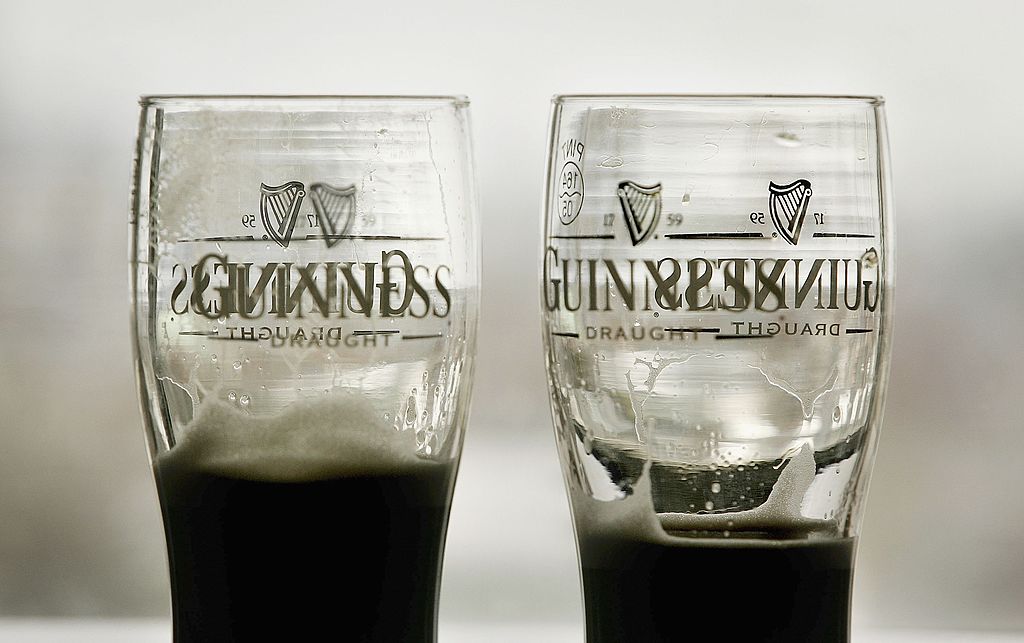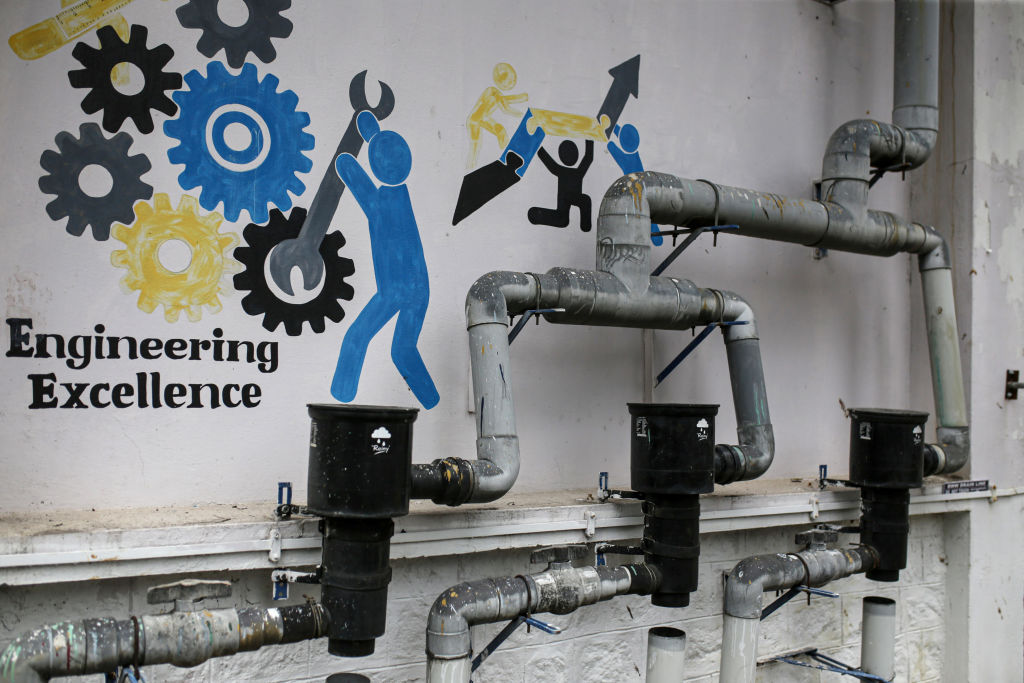
Diageo Plc, the world’s biggest spirits company, is worried that climate change is going to make scarce the one ingredient that’s essential for making all of its alcoholic drinks: water.
Water security poses the most significant climate change-related risk for the maker of Tanqueray gin, Guinness beer, and Baileys Irish Cream, according to Michael Alexander, global head of water, environment, and agriculture sustainability at Diageo, which had 43 sites globally in water-stressed areas last year.
“You could be with the most efficient brewery or distillery in the world,” Alexander said in an interview. “But it’s still not going to mitigate your risk if there’s a drought.”
The planet is warming at a super fast pace, triggering more intense heatwaves, unusually long dry spells, and disrupted weather patterns. This is forcing companies, ranging from jeans maker Levi Strauss & Co. to British hospitality firm Whitbread Plc, to adopt strategies that use less water in industries that are known to be very thirsty.
Diageo is no different. It’s overseeing water efficiency projects in Turkey and looking to cut water usage by 2030. Water makes up more than 60% of spirits and more than 90% of beer. The remaining ingredients—grapes and grain—also depend on irrigation for farming, making water supplies absolutely critical in Diageo’s supply chain.
Read More: How Climate Change Is Affecting France’s Wine Industry
The London-based alcoholic beverage company has pledged to replenish more water than it uses in all the “water-stressed areas” it operates in by 2026. These are regions where the demand for water exceeds the supply during some periods or the poor quality restricts its use. Among these countries is Turkey, where it makes the aniseed-flavored spirit raki, and Mexico, where it manufactures tequila.
The company used about 17.52 billion liters (4.6 billion gallons) of water in its operations in 2022, according to its ESG reporting index. Diageo has committed to a 40% improvement in water use efficiency by 2030 compared to 2020 levels in stressed areas and 30% improvement across the board.
“We know we’ve got a good strategy in place but we also know that the crisis is accelerating,” Alexander said.

In the last three to five years, Diageo has begun working with water users outside its supply chain, such as farmers, utility companies, other big industries, and governments, as it encourages laws aimed at preventing water shortages.
In Turkey, Diageo’s Sahyar project supports construction of infrastructure to address water security. The distiller there already replenishes more water than it uses in some areas and promotes drip irrigation that protects the soil and increases the crop yield.
Drip irrigation trickles water a drop at a time, directing it to the root of the plant, thereby reducing evaporation. So far, this initiative in western Turkey has saved around 93,000 cubic meters of water since last year. It aims to save 177,000 cubic meters before the end of 2026.
Helping Turkish farmers with a more efficient irrigation technology not only saves water, it also reduces the carbon footprint. “They’re not running their pumps for as long and they’re not emitting so much carbon,” Alexander said.
More Must-Reads From TIME
- The 100 Most Influential People of 2024
- The Revolution of Yulia Navalnaya
- 6 Compliments That Land Every Time
- What's the Deal With the Bitcoin Halving?
- If You're Dating Right Now , You're Brave: Column
- The AI That Could Heal a Divided Internet
- Fallout Is a Brilliant Model for the Future of Video Game Adaptations
- Want Weekly Recs on What to Watch, Read, and More? Sign Up for Worth Your Time
Contact us at letters@time.com